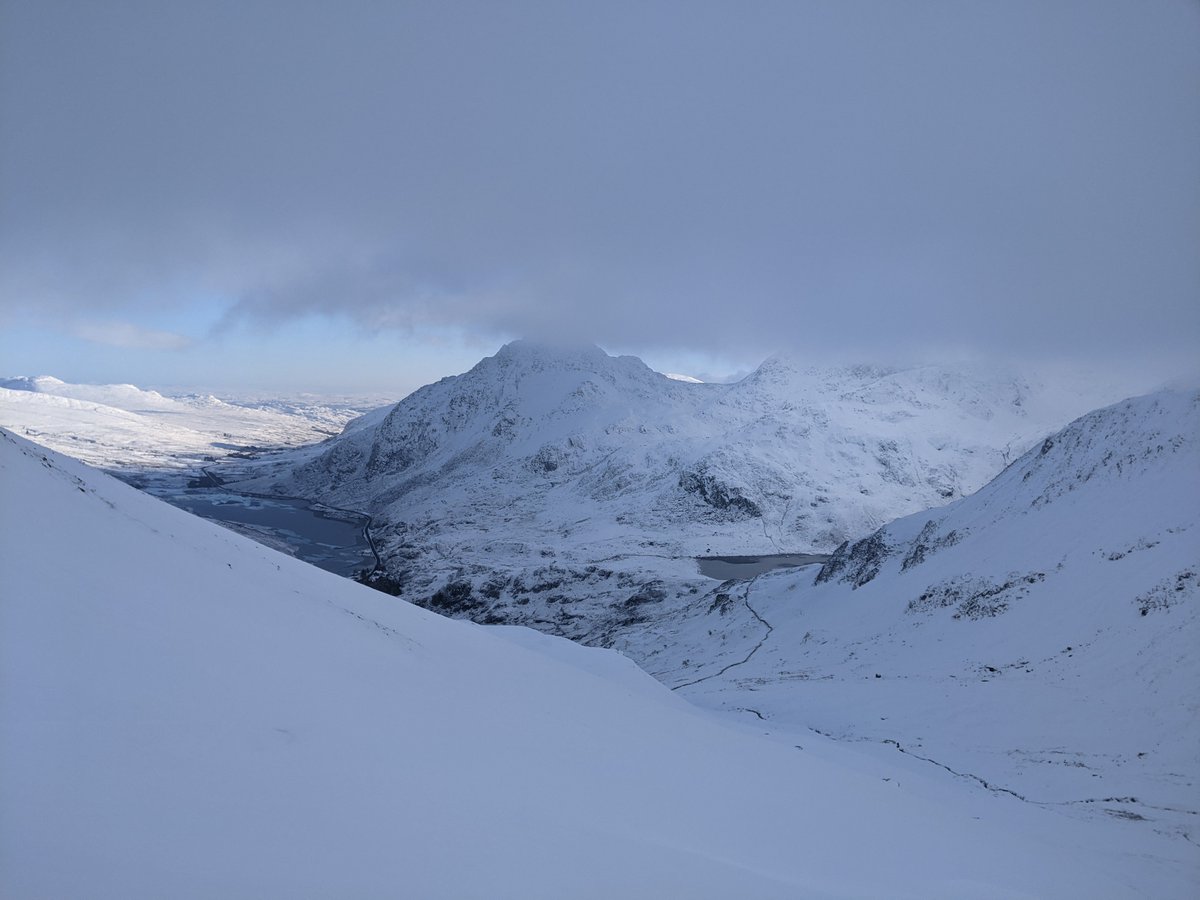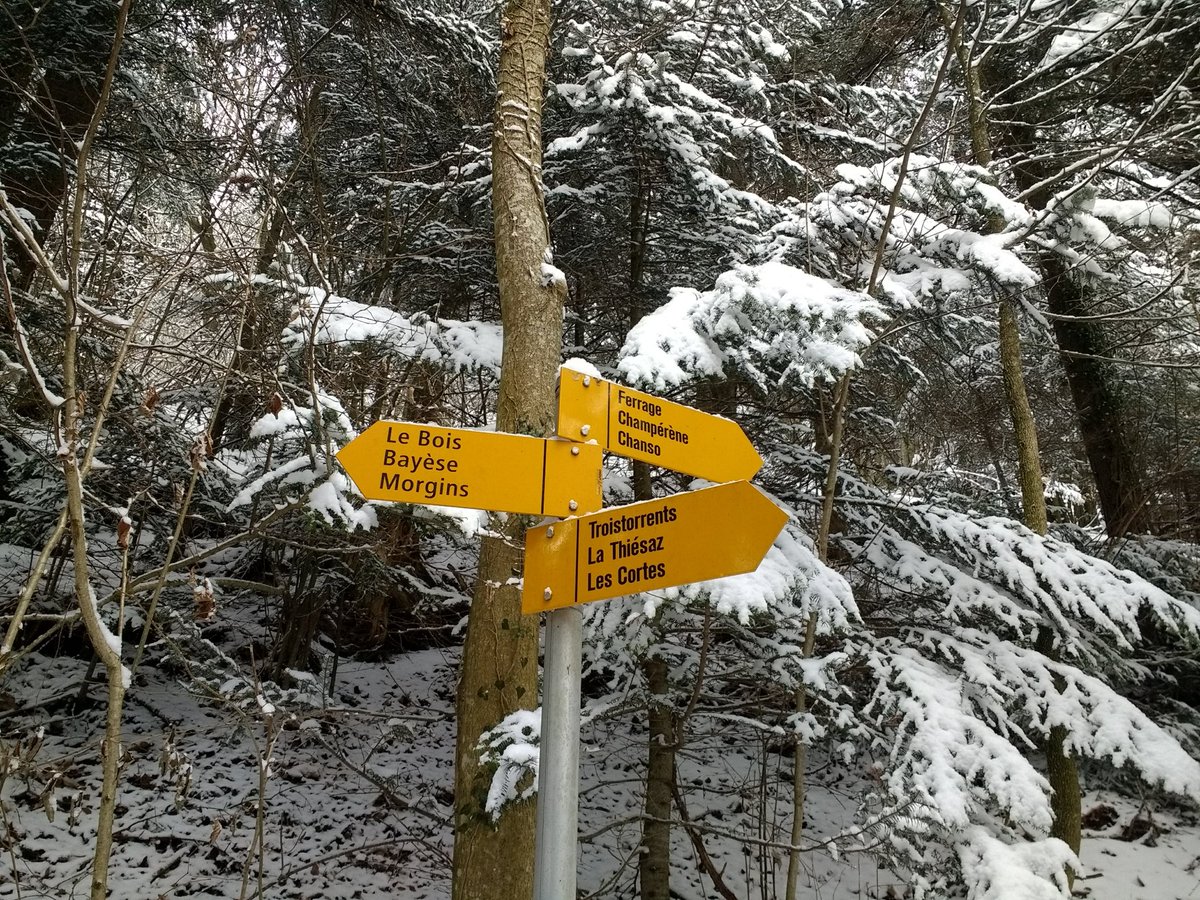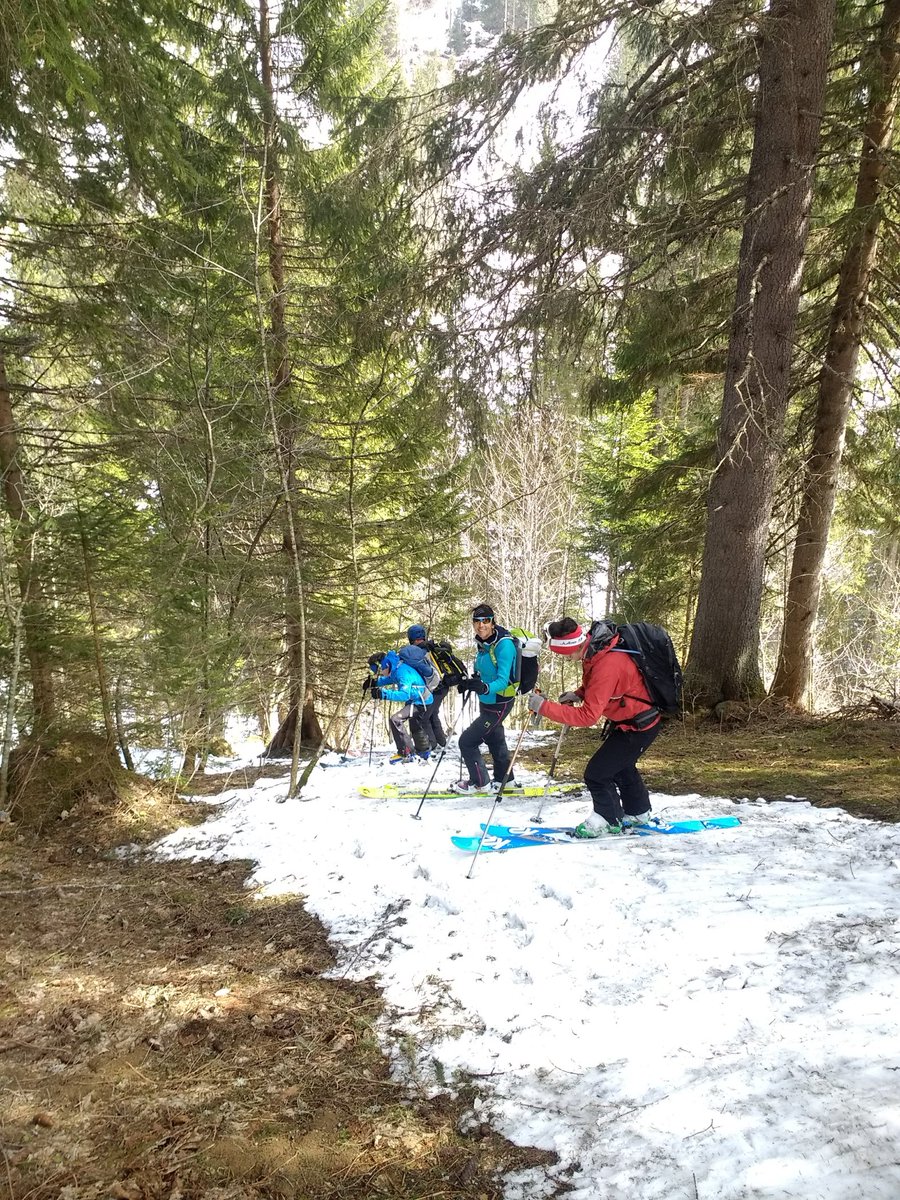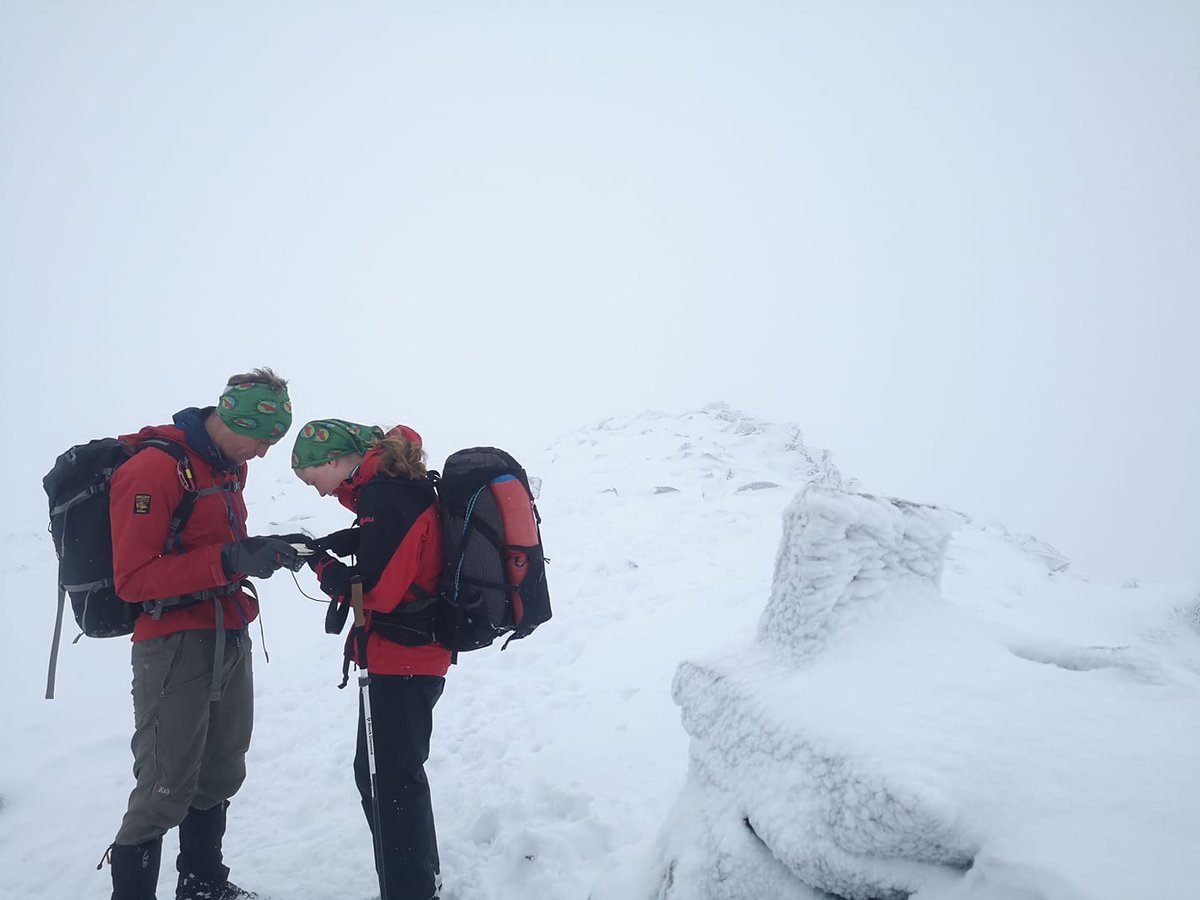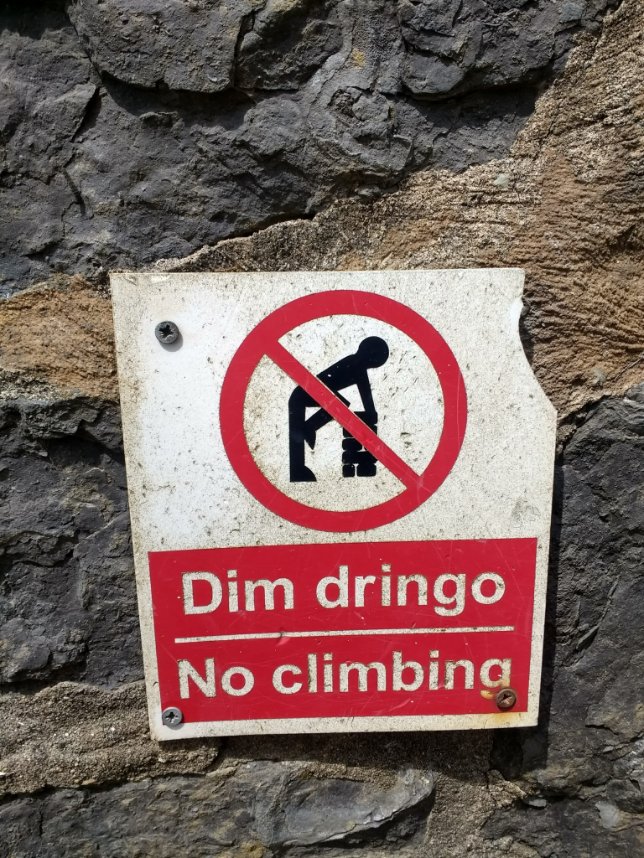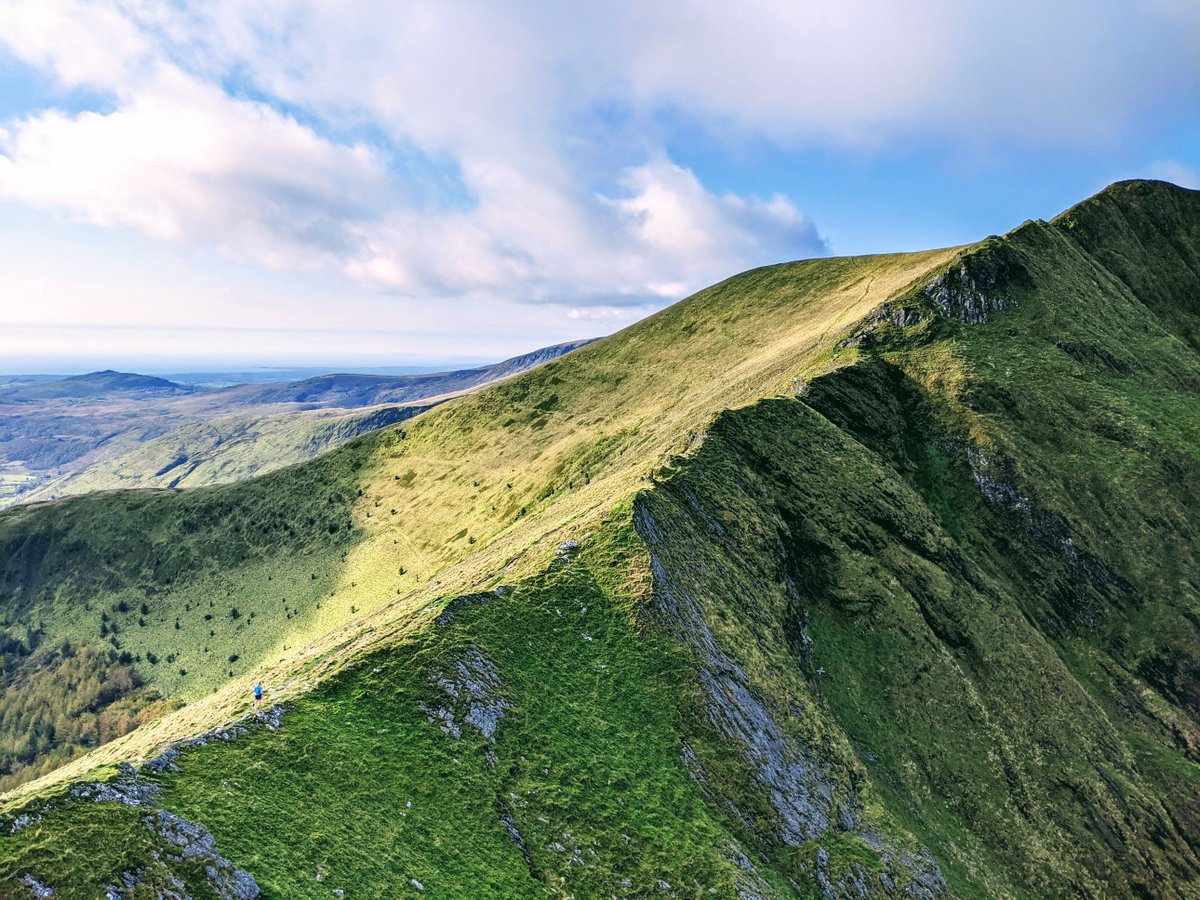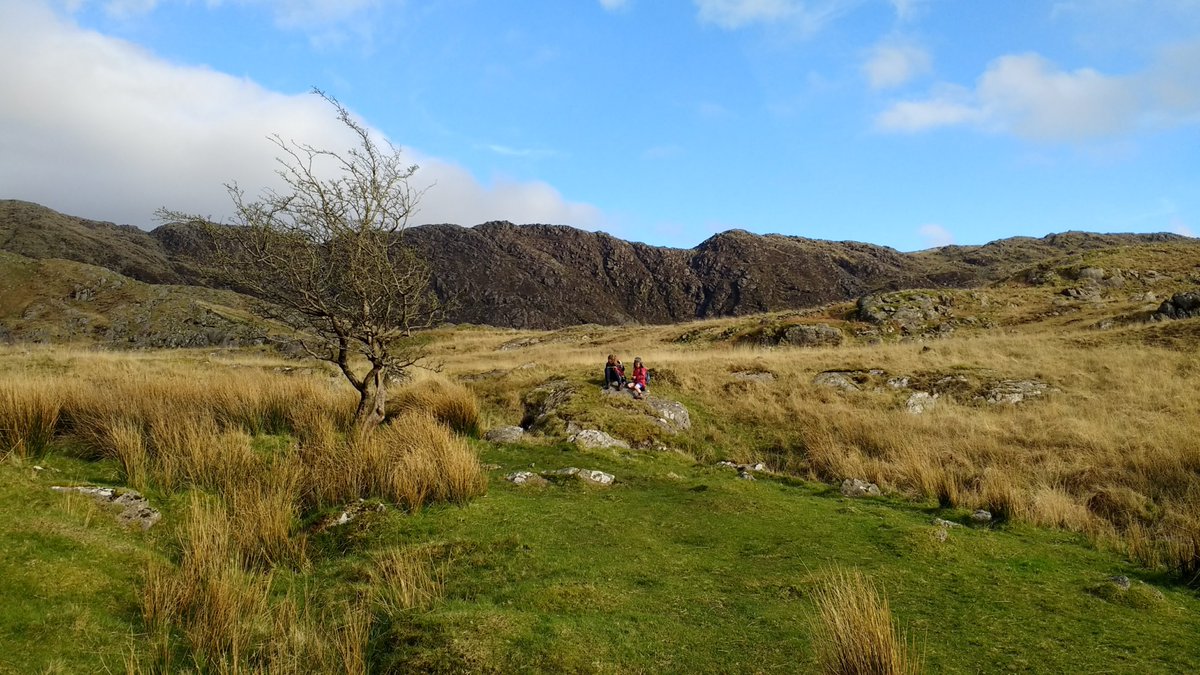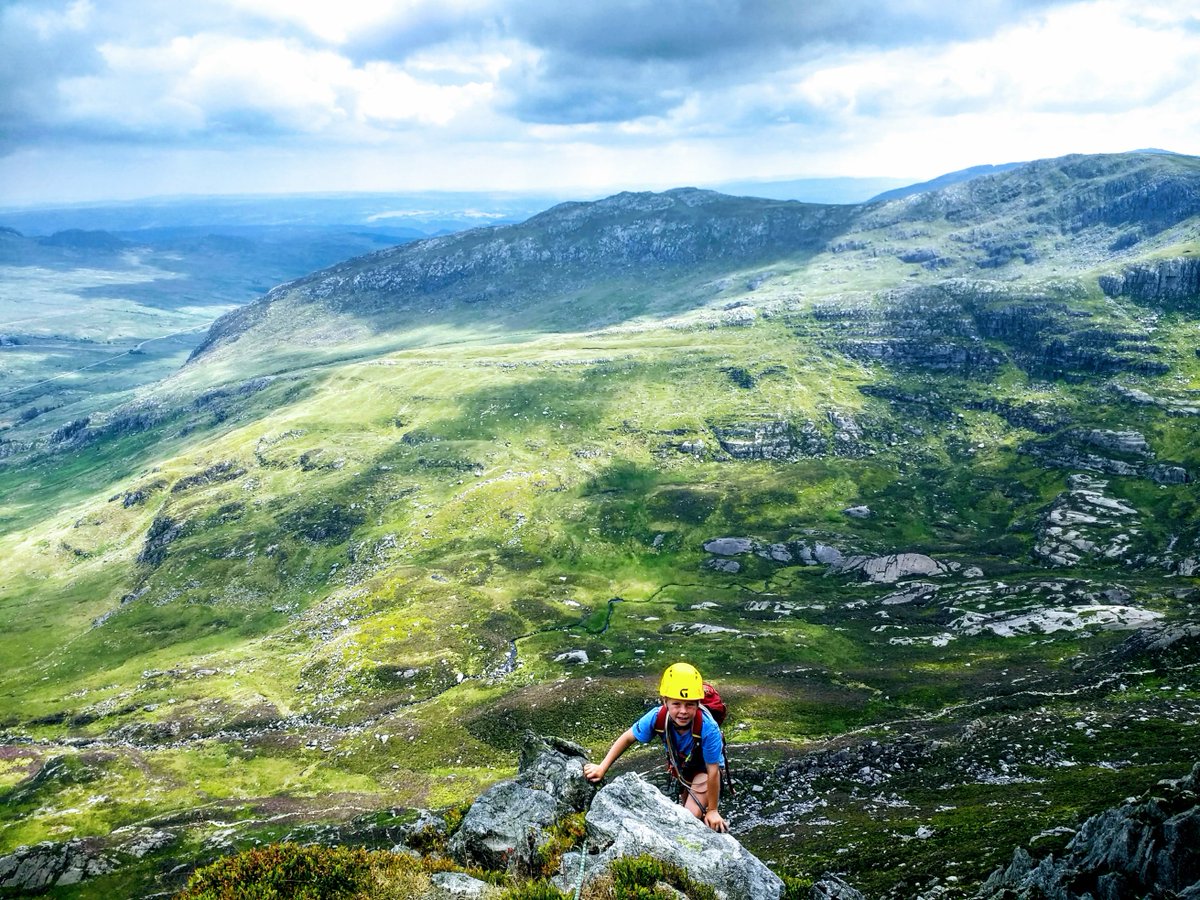This has been taking some flak from ppl who know that bracken isn't the climax vegetation in the uplands. But responses that talk of "wastelands" are also missing something. That millions of ppl love the Lakes shld remind conservationists it aint all about biodiversity [thread] https://twitter.com/BBCCountryfile/status/1348631062918868993
Ppl value aesthetics (culturally inherited?) but also access: legal & physical. We can roam the British uplands in a much freer way than we could if they were covered in trees. This beautiful Welsh landscape I was ski-touring on Sat "should" be forested! Kinda glad it wasn't!
Anyone who has spent much time in forests knows that going off the path rapidly becomes a total PITA (yes, tree skiing can be fun with the right stand density near the tree line). Many forested National Parks elsewhere have quite restrictive trails, at least below the tree line.
The whole self-reliant (verging on anarchic) culture of hill-going in Britain was influenced by ancient deforestation: the lack of waymarked paths (and our weather!) brings self-responsibility for your route & makes the British hills much "wilder" than their scale would suggest.
I have lot of love for European mountain culture, but what we have in the UK is also really special and valuable, especially at a time when the world is becoming ever more organised, sanitised, "accessible".
Ironically therefore, the very anthropogenic nature of the UK uplands makes them "wilder" (in some ways) than they would otherwise be! Because "wildness" is (partly) in the mind. It's abt freeing oneself from constraints & safety, being able to lie to yourself that you're the 1st
OTOH, forests are great at hiding people! It's much easier to imagine you're alone in a forest than on Snowdon on a bank holiday.
Even in the honey pots, one can be alone if you don't follow the crowd, as I had the luck to be the other eve on Snowdon. And I had a cracking view of my local "sheep wrecked desert"! I know, it could be more biodiverse, better at regulating floods, and prob store more carbon.
And this doesn't just apply to the UK. Madagascar's uplands tend to be written off as fire-wrecked deserts by conservationists who know better, but they are also cultural landscapes, with their own heritage, meaning and values https://twitter.com/SarobidyRakoto/status/1324352128618582017?s=20
I've passed many a happy day walking, running or biking the anthropogenic Betsileo highlands (having nice chats with incredulous locals). I'm out of touch, but if they aren't already, the burgeoning Malagasy middle class will soon be doing likewise https://twitter.com/icimadagascar/status/686913187279691777?s=20
All this is not to say we couldn't use some more trees in the British uplands. And I'm definitely up for totally overhauling our insane system of agricultural payments! But conservationists need to remember most normal ppl see the world very differently from them.
Perhaps British conservation has spent too much effort preserving agriculturally denuded ecosystems. But international conservation has been dominated for too long by exclusionary species-richness-maximising twitchers. And most people aren't twitchers.
Public £s for public goods (as well as basic ethics) means at least understanding other people's values - while of course still arguing for one's own. (After all, the general public probably want waymarked paths and benches everywhere, and they're wrong ;-)
Ha, @BBCCountryfile has now deleted the Herdwick sheep tweet I've just spent 20 tweets sorta defending! Of course, if they want to commission a five-part series on cultural values of the British uplands, rewilding, de-peopling and the wildernesses of our minds to apologise ;-)
Seriously, @BBCCountryfile there was some good debate happening under that tweet, why delete it? You don't have to be right.
Here's a screenshot of the original tweet (and a good point by @PinkfootedGus) https://twitter.com/PinkfootedGus/status/1348960482401652737?s=20

 Read on Twitter
Read on Twitter